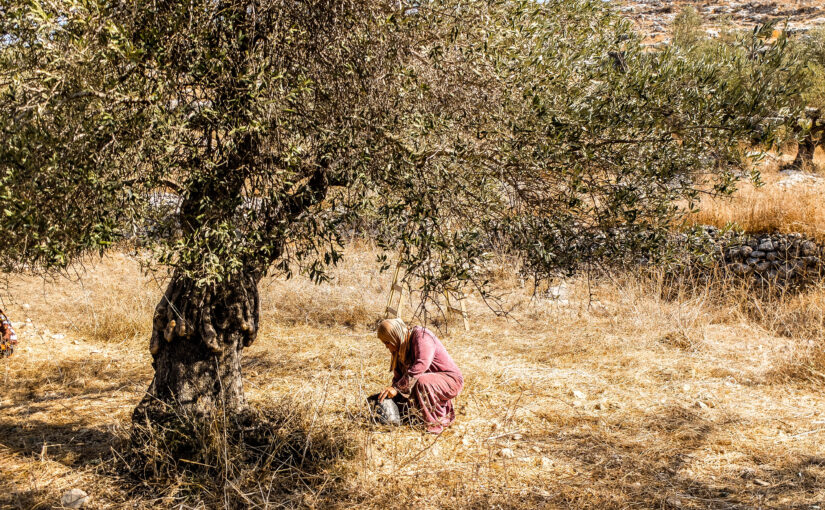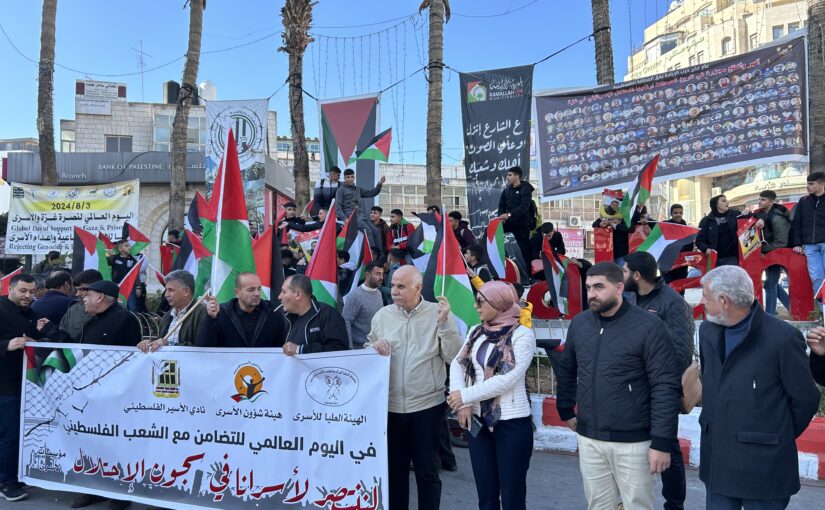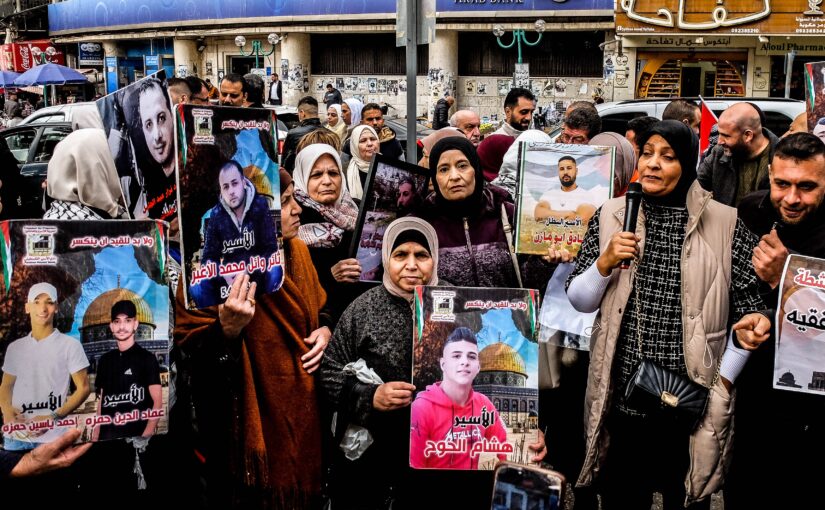-
Stories from the Palestinian olive harvest under occupation
Ahmad smiles, his eyes black, his wrinkles deep. He speaks his basic English as he lugs around plastic bags and water bottles: a breakfast that looks to me more like lunch. His olive grove is in front of a settlement; one of many Israeli settlements that are illegal under international law but have been colonizing […]
-
Vigil for Prisoners in Ramallah
by Birdie ________________________________________________________________ Today I went to a protest. This isn’t something I had necessarily expected to do on the West Bank. We’re told that the risk level at demonstrations is high; Ayşenur was murdered at one. And I had made a solemn promise to my very anxious friends and family back home that I […]
-
The voice of family members of detainees in Israeli jails
On Monday 25 November, about eighty women, mothers, sisters and wives, gathered in Nablus, in the West Bank, to demonstrate in solidarity with the nearly 100 women detained in Israeli jails, along with around 12,000 men, to demand their release and an end to the ongoing genocide in Gaza. Their family members have been in […]
Action Alert An Nabi Saleh Apartheid Wall Arrests BDS Bethlehem Bil'in Cast Lead Demonstration Denial of Entry Ethnic Cleansing Farmers Gaza Global Actions Hebron House Demolition International law Israeli Army Jerusalem Live Ammunition Nablus Ni'lin Prisoner Ramallah Rubber-coated steel bullets Settlement Settlers Settler violence Tear-Gas Canister Video



